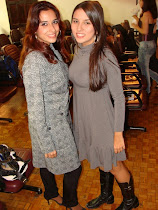"You can destroy your now by worrying about tomorrow"
 "Onstage, I make love to 25,000 people - then I go home alone."
"Onstage, I make love to 25,000 people - then I go home alone." Rock Singer. Born in Port Arthur, Texas on January 19th, 1943. Graduating from Thomas Jefferson High School, she was a member of the Glee Club and the Future Teachers of America. She attended Lamar State College and the University of Texas, where a fraternity voted her the ugliest man on campus in 1963. She dropped out and spent two years traveling, performing and becoming drug addicted. In 1966, she became the lead singer for "Big Brother and the Holding Company. She is featured on the band's second album, "Cheap Thrills." The next year, she formed the "Kosmic Blues Band", and became further noticed when she performed solo at the 1969 Woodstock Music Festival. On November 15th, 1969, she was arrested in Tampa, Florida, for vulgar and indecent language, for which she posted fifty dollars bond. On October 4, 1970, she was found dead in her room at the Hollywood, California Landmark Motor Hotel, from an apparent heroin-alcohol overdose. She was never married, and left no children. Her best selling album, "Pearl," was released posthumously, and she was inducted into the Rock and Roll Hall of Fame in 1995.
and here is her song that I liked the most:
Oh Lord, won't you buy me a Mercedes Benz?
My friends all drive Porsches, I must make amends.
Worked hard all my lifetime, no help from my friends,
So Lord, won't you buy me a Mercedes Benz ?
Oh Lord, won't you buy me a color TV?
Dialing For Dollars is trying to find me.
I wait for delivery each day until three,
So oh Lord, won't you buy me a color TV ?
Oh Lord, won't you buy me a night on the town?
I'm counting on you, Lord, please don't let me down.
Prove that you love me and buy the next round,
Oh Lord, won't you buy me a night on the town?
Everybody!
Oh Lord, won't you buy me a Mercedes Benz?
My friends all drive Porsches, I must make amends,
Worked hard all my lifetime, no help from my friends,
So oh Lord, won't you buy me a Mercedes Benz?







